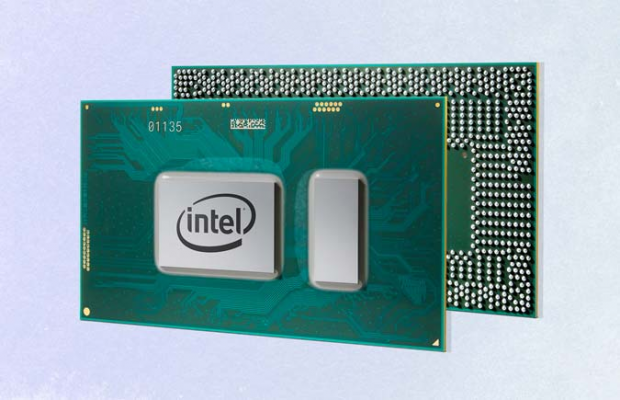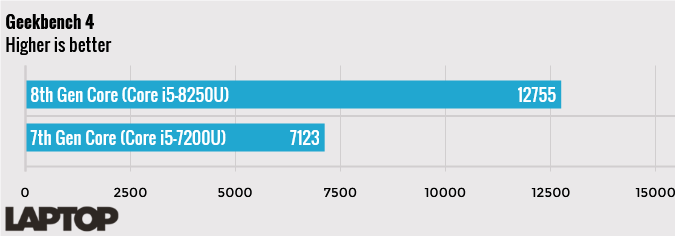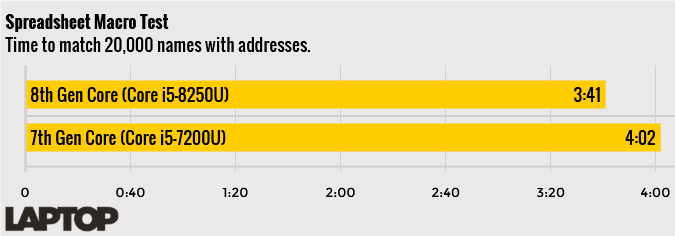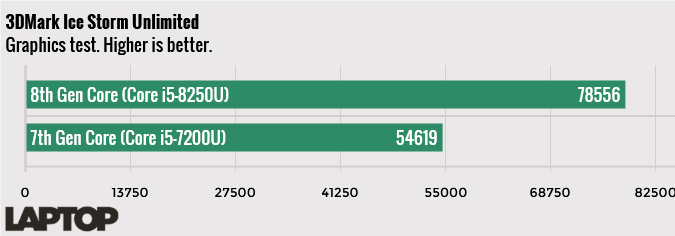Tested: 8th Gen Core As Much as 76 Percent Faster Than Prior Gen
Ever since Intel unveiled its 8th Generation "Kaby Lake Refresh" CPUs in August, we've been eager to see how laptops with these chips perform in real-life. Intel says that laptops with its new processors are as much as 40 percent faster than the prior-generation "Kaby Lake" CPUs, a lofty claim that sounds too good to be true. However, in our initial tests with an Acer Swift 3 laptop, we got scores that were as much as 76 percent higher than a nearly-identical notebook with a 7th Gen Core CPU.
When we ran Geekbench 4, a synthetic test that measures overall performance, on a Swift 3 with an 8th Gen Core i5-8250U CPU, the laptop scored an impressive 12,755, which is 5,513 points or 76 percent higher than a Swift 3 with a Core i5-7200U CPU that we tested in July . Both the versions of the Swift 3 had 8GB of RAM and a 256GB SSD. Aside from the CPU, the only difference between the two laptops was that the 7th Gen Core model had a 14-inch screen and the 8th Gen system had a 15-inch display (both screens were 1080p).
Intel's 8th Gen Core laptop processors in the mainstream U series improve on their predecessors by doubling the number of physical cores from two to four, increasing the maximum clockspeed and adding more on-chip cache. The Core i5-8250U CPU we tested is the direct successor to the Core i5-7200U processor, because both are the entry-level Core i5 chip in their respective lineups. The 8250U can increase its clock speed up to 3.4-GHz while the 7200U tops out at 3.1-GHz; also, the new chip has 6MB of SmartCache compared to 4MB on the older model.
Because of the larger cache and higher turbo speed, the new Swift 3 was also noticeably faster when we ran an application that doesn't take advantage of multiple cores. It took the laptop with the new chip just 3 minutes and 41 seconds to complete our spreadsheet macro test, which involves matching 20,000 names with their addresses in OpenOffice Calc, a single-threaded app. The 7th Gen-powered laptop completed the same task in 4 minutes and 2 seconds, a delta of 9 percent. While a 9 percent improvement isn't as impressive as a 76 percent gain, it is significant, particularly when you're performing even more intense tasks.
Intel says that graphics performance on 7th and 8th Gen chips should be the same, because both processors use the same Intel HD 620 GPU. However, the laptop with 8th Gen Core creamed its predecessor, scoring 78,556, a full 43 percent higher than the 7th Gen laptop (54,619).
Whatever way you slice it—general performance, number crunching or graphics prowess—the 8th Gen Kaby Lake Refresh chips appears to offer a serious improvement over their 7th Gen counterparts. We look forward to running more real-world tests on matching laptops and, most importantly, to seeing how the more powerful chips affect battery life. Stay tuned.
- Intel 8th Gen Core CPUs: What You Need to Know
- Intel 8th Gen Core CPUs: What You Need to Know
- Intel's 8th Gen Core Branding Will Confuse the Masses
Sign up to receive The Snapshot, a free special dispatch from Laptop Mag, in your inbox.





